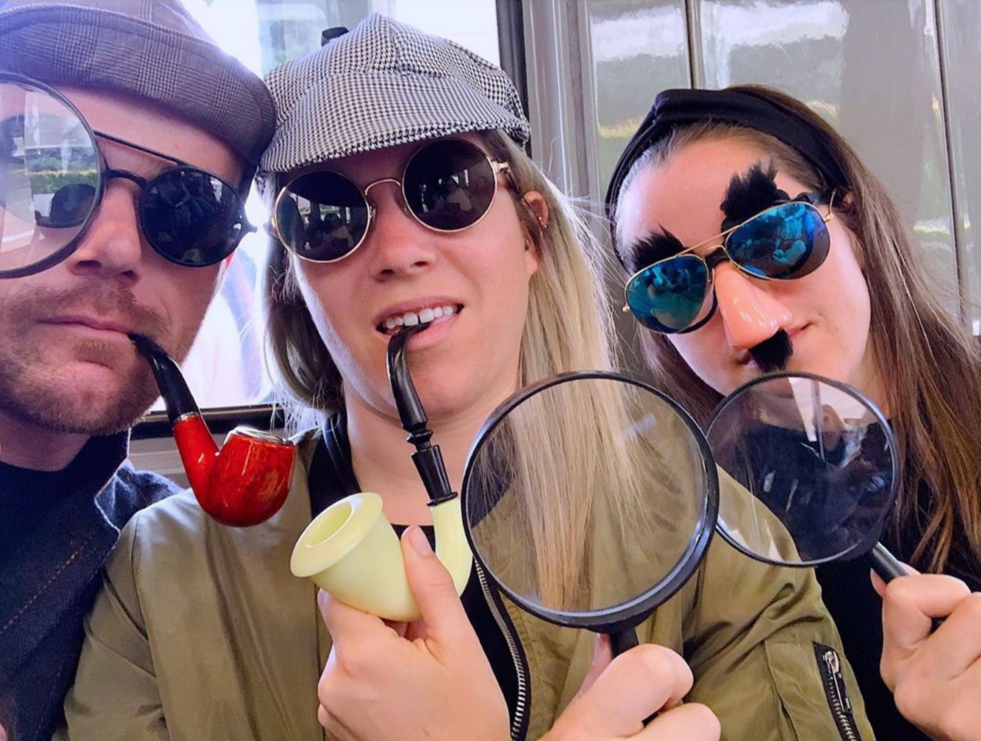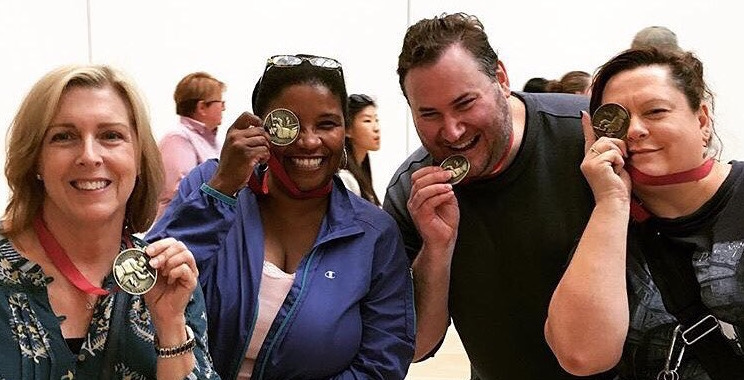Start the Hype Train Rolling
Planning a company event is wonderful, commendable work. You’ve been given a budget and a mandate to do something fun for your colleagues or summer associates. Whatever the audience, they, just like you, have been in the thick of the enterprise at hand, and now you have the privilege of providing a breather from all that.
Strangely your colleagues, the honored guests, may very well initially feel detached from a company-hosted event! Even when you’ve booked a Watson Adventures scavenger hunt, your colleagues might not jump for joy at first. Though we’ve served more than half a million hunters, in more than 70 cities, it can be a challenge to get your I’ve-got-so-much-to-do coworkers to translate news of a company scavenger hunt into an I-can’t-wait-to-do-that frame of mind. Fortunately, we can help with that, too. Here are eight ways to encourage employees to participate in company events and get them excited:
1. Provide a compelling invitation

Thoughtfulness and a touch of creativity put into the invitation provides a signal that the company is invested in the event. No matter how big or small, make it known that the event is at the heart of the organization and not a sidelined afterthought. If there is an RSVP, you could tie the response to a challenge, such as a trivia question for which you only get the answer after responding. Avoid a plain announcement of just place, date, and time.
If you have a specific theme, make sure the invitation promotes that theme. In the case of a Watson Adventures murder mystery game, you might take aspects of your company (computers, data, clothing, court cases, medical devices, etc.) and tie them humorously (or not) to a detecting motif (Sherlock Homes, CIA agents, etc.). The life of the party begins with the invitation.
2. Share why it is special
This sounds obvious, but it is often an overlooked opportunity to inspire. People may get merely a vague impression of what may be fun about the event, but leaving that interpretation to the wind is not enough. You will create a much more powerful impression when you create a concrete vision of that fun experience. To do this, simply capture and share the elements that turned you on to this event. Was it a particular quote displayed on the event website? Was it an image of someone enjoying the event? Was it a specific description of the experience? Was it a personal memory from a past similar event? Communicate the specific elements that got you excited and the unique details that peaked your own interest.
This website itself is an excellent resource for orienting folks to a Watson Adventures hunt. It is dedicated to introducing newcomers to Watson Adventures’ unique style and variety of scavenger hunts. If any part of the website helped prompt you to choose to take on a hunt, such as a hunt description or our introductory video, share that inspiration by directing folks to those pages.
3. Make it about the participants
One reason for an employee’s reluctance in going to a company event is that it can be perceived as just another thing the company is asking you to do. It’s another calendar item getting in the way of other calendar items. In all communications, be sure to drive home the message that this is not about obligation but about the good stuff—the non-work, the fun, the appreciation. It’s that rare time when it’s not about the organization, it’s about honoring and catering to those who make it thrive.
4. Connect it to the mission or goal
This may seem like a contradiction to the previous tip, but let’s go a little further. Every organization has a mission or goal, and everyone in the organization is employed to support that mission or goal. Naturally, people are already invested in that common vision. Whether fully inspired by the day-to-day work at hand or not, people really do want to be seen as a part of the resulting or future success. When the event is positioned as an outpouring from that goal and the work that went into it, people naturally want to be (and deserve to be) included in that recognition.
5. Get the senior executives involved
This means more than having leadership show up and observe. It means having them take an active role in the activities. That commitment from senior leaders provides another signal that the organization places value on the event and demonstrates the important element of being in it together. Participation should include the primary activities and can also include making remarks (nothing too lengthy or corporate-speak, please!), giving out awards, or naming winners of contests. The key actions are securing an early commitment to that executive participation and then sharing early on the ways in which leadership will be participating.
6. Give out prizes

It’s always a perk to know you might win something. This doesn’t have to be extravagant, and it may or may not be tied directly to the event. Prizes can be in the form of gift cards, event tickets, or company merchandise. Or consider granting an extra three-day weekend, an afternoon off, or take-out lunch for a team or department. (This works well for remote teams, too.)
A prize could also include something humorous or creative. Have a bagel-and-coffee breakfast delivered by the president of the company. Display a photo of the winning team in a prominent space. Or, like we’ve done for many in-person Watson Adventures games, hand out custom-made medals. Often, the more unusual and personal the prize is, the more it will inspire.
7. Conduct a teaser campaign
Don’t just get the word out on your event. Strategically build interest and conversation around the event by conducting a teaser campaign. Beginning some weeks before the event and in regular intervals, drop enticing details about the event without revealing the whole thing. You can also use this process to promote the messaging and strategies above, which only work when shared prior to the event. Use various media channels if multiple modes of communication are used in your organization.
8. Make it easy
Perhaps above all, make attending the event as easy and convenient as possible. If it’s an off-site event, provide an easy means of getting there, including organizing transportation or ridesharing if necessary. In addition, provide an online posting with clear details on all the specifics—what, where, when, and even why. Anticipate any additional questions and post them centrally, such as “What should I wear?” or “What should I bring?” or “When will it conclude?” or “Will there be drinks?”
For large groups, those could all be placed on a dedicated page online. The page should provide the specifics, and it should also be used as another place to shout out the most compelling and fun aspects of the event.
Find More Fun
Before you show folks that your event is special, fun, something they deserve, and something they don’t want to miss, you need to make sure that’s true! Contact us to learn more and start planning your can’t-miss team-building scavenger hunt or virtual game today.